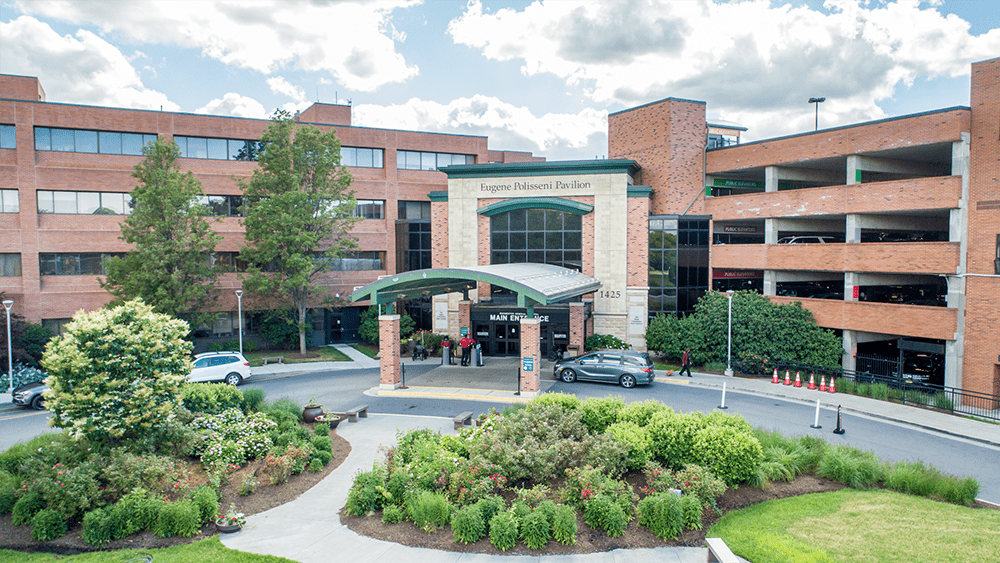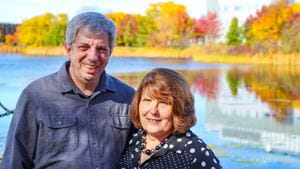
If there is a word to describe David Priolo and his wife Bonnie, it would be busy.
After working at Tops Friendly Markets for 40 years, David retired, only to start a new post-retirement job delivering automobile parts. In their leisure time, David and Bonnie ride bicycles together – David usually pedaling out in front.
The couple lives close to their five grandchildren, who range in age from 8 months to 15 years, and spend a lot of time playing with and caring for them.
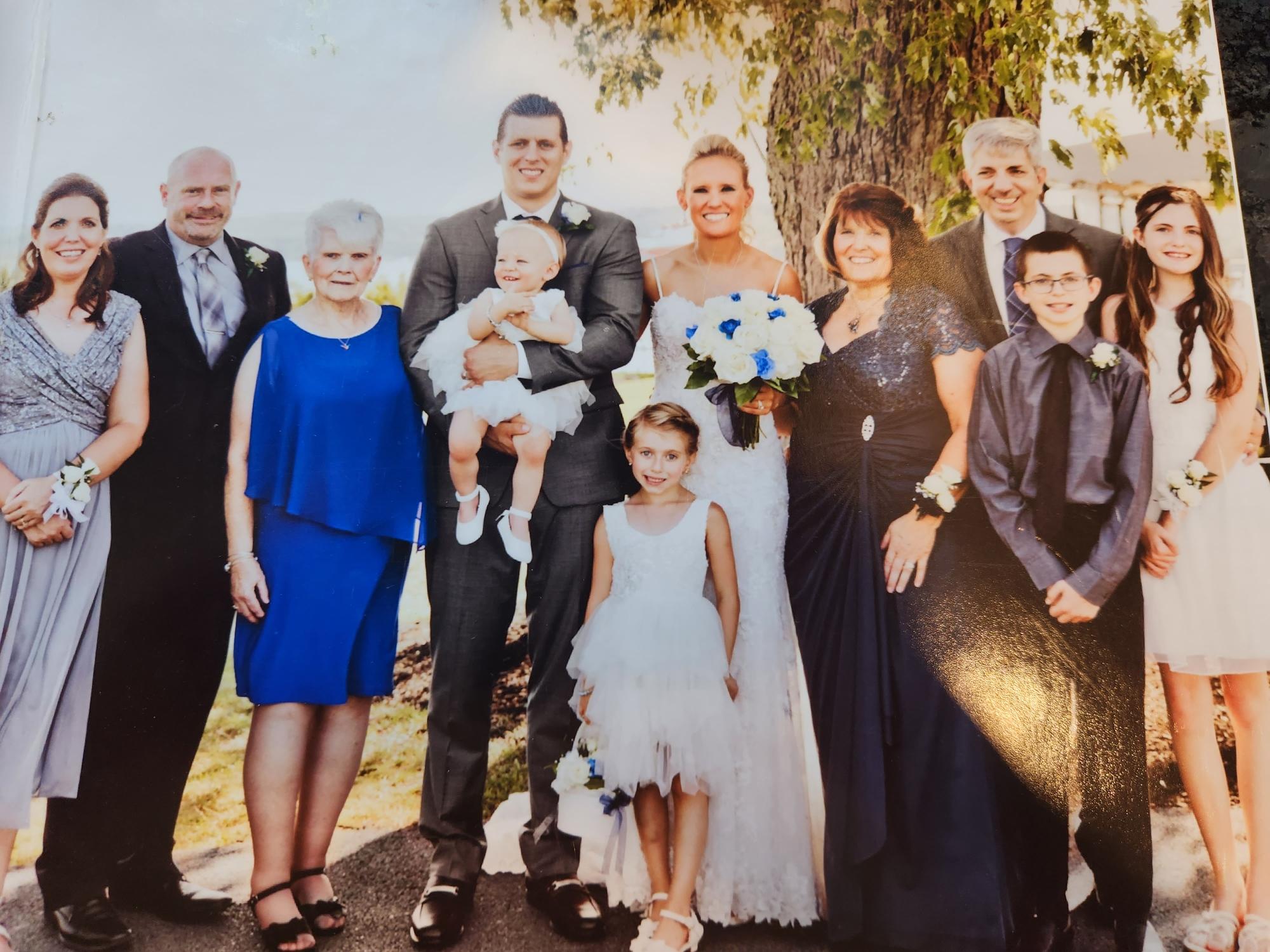
For David, his energy level slowly started to change in the fall of 2021 in ways that became increasingly noticeable.
In late October, David started to feel fatigued at work. He would come home from a short day of driving and take naps. As his fatigue set in further, he fell behind on bike rides. Chores and simple household tasks would take too long or go unfinished because he became winded and had to stop.
During this time, one of the most difficult challenges became not having the energy to play with his grandchildren.
“His nickname became ‘Papa Night Night’ because he would fall asleep all of the time,” Bonnie said.
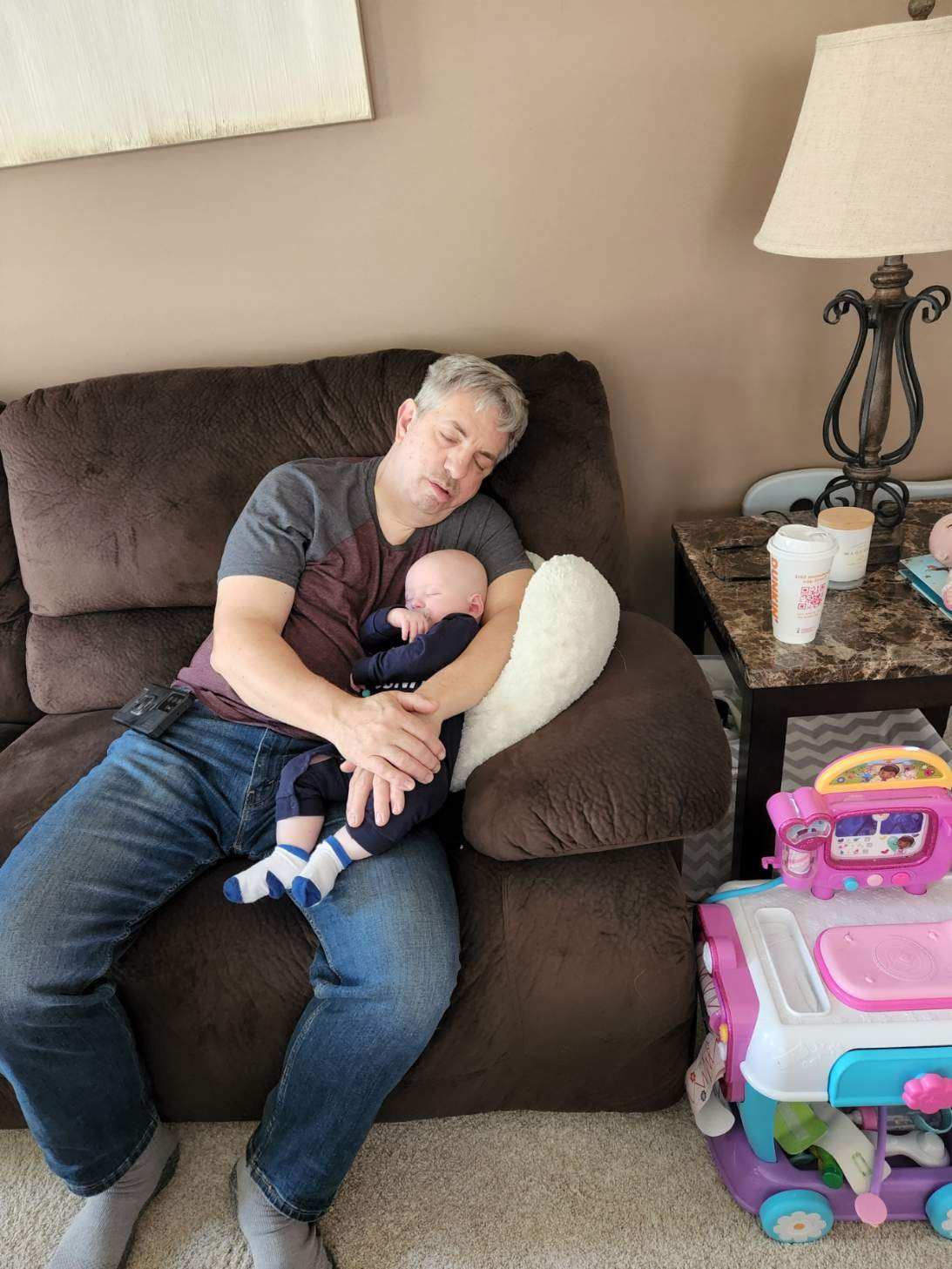
As David’s energy level continued to plummet in December, he got sick with COVID-19. But even after recovering, his energy never came back.
“I was still tired and coughing a lot, but I didn’t know if it was COVID or my heart,” David said. “I just didn’t feel like going back to work. I was too tired.”
As David’s condition worsened, a cardiology team he had been working with due to a prior condition moved up his annual echocardiogram. After following up with an angiogram and an MRI, David’s team brought him in to discuss his most recent imaging, and strongly encouraged him to consider heart valve replacement surgery.
The thought of having a heart valve replacement surgery made David nervous – having cared for his mother-in-law as she endured a long recovery from her own open heart surgery. He thought his experience might be similar.
Then something changed: David learned that he was a candidate for a transcatheter aortic valve replacement procedure, or TAVR. He and Bonnie met with both Dr. Jeremiah Depta and Dr. Deyanira Prastein to discuss the benefits and challenges of both TAVR and valve replacement through open heart surgery.
“Both doctors made everything very easy to understand. They were forthright and honest about their recommendations, but never pressured us one way or the other,” Bonnie said.
After deciding on the TAVR procedure and scheduling the surgery, David said he felt nervous – as he always does before most medical appointments. But as he went into the pre-operative room and met with his surgical team, that anxiety lessened.
“I was at ease. I had been well informed about what they were doing and I could see everyone had their own job,” David said. “They made me feel comfortable in my decision to do the procedure.”
“Everything was organized and well communicated,” Bonnie said. “From scheduling to prep to mid-procedure, the medical team made it so easy – addressing our concerns, taking precautions for all the procedures, and monitoring his heart for several weeks after the surgery to make sure his recovery was okay.”
Once the surgery was complete, David said he sat up and immediately noticed some changes. He could breathe easier, didn’t have to cough anymore, and simply felt better.
Before the surgery, David had wanted to stay overnight at Rochester General Hospital. But after consulting with his medical team, everyone agreed he could go home the same day.
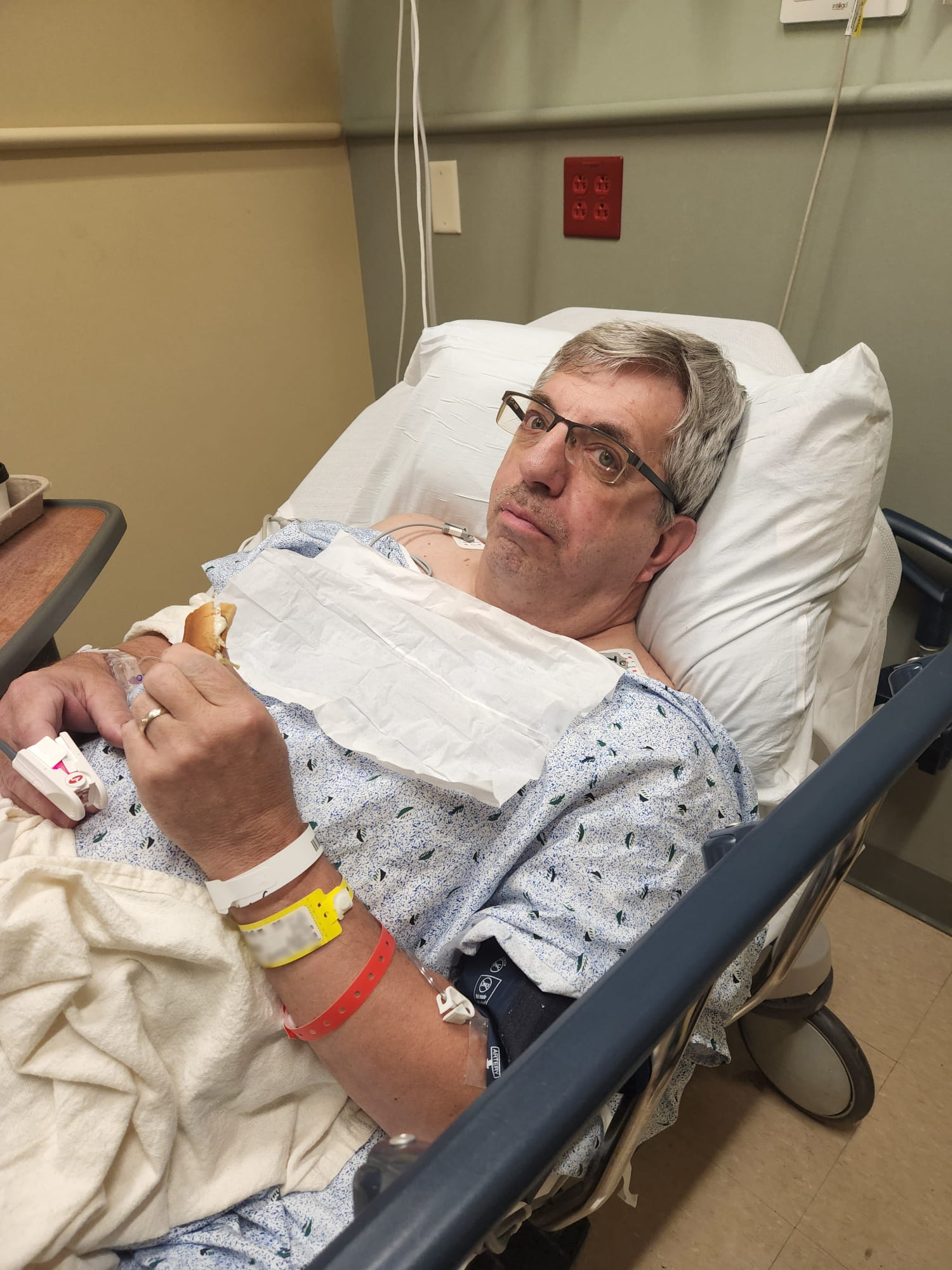
“I remember riding home in the car with him and having him say, ‘Is it possible that I can be feeling better already?’” Bonnie said.
Two days after the surgery, the couple went to visit one of their daughters. David got out of the car, grabbed a chair from the trunk, and carried it all the way to the house. During the visit, several family members noticed him laughing, talking, and – most surprisingly – not sleeping in his chair.
“My daughter pulled me aside at one point and said, ‘He’s back!’” Bonnie said. “And I said, ‘I know!’”
In the months since the TAVR procedure, David is back on his feet. He is mowing the lawn again, taking care of the honey-do lists around the house, and exercising as much as possible.
David is also back to driving again, but he isn’t delivering auto parts and supplies. Instead, he drives his grandchildren around to their sports games and afterschool activities.
“One night, our 3-year-old granddaughter was talking about David and said to me, ‘Papa no night night no more,’” Bonnie said. “Even she notices how much more active he is!”
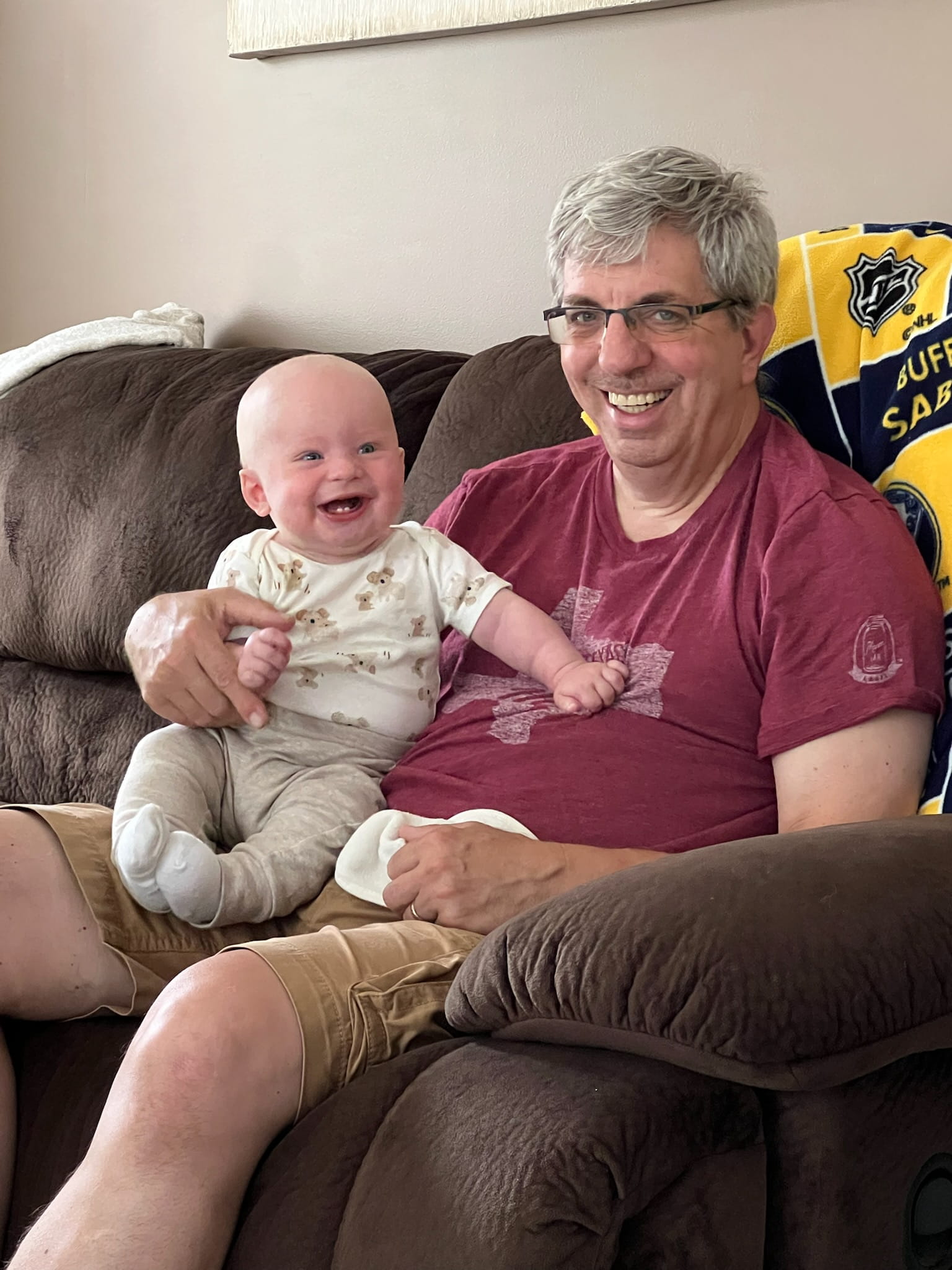
For anyone who may be feeling how he felt in late 2021, David encourages them not to let the thought of surgery get in the way of living well again.
“Deep down, I knew for a long time that I needed to get it done,” David said. “You don’t realize how bad it is until you are so wiped out by basic things…I didn’t need to be scared. [Doctors] are doing it a new way now. Listen to your body.”
